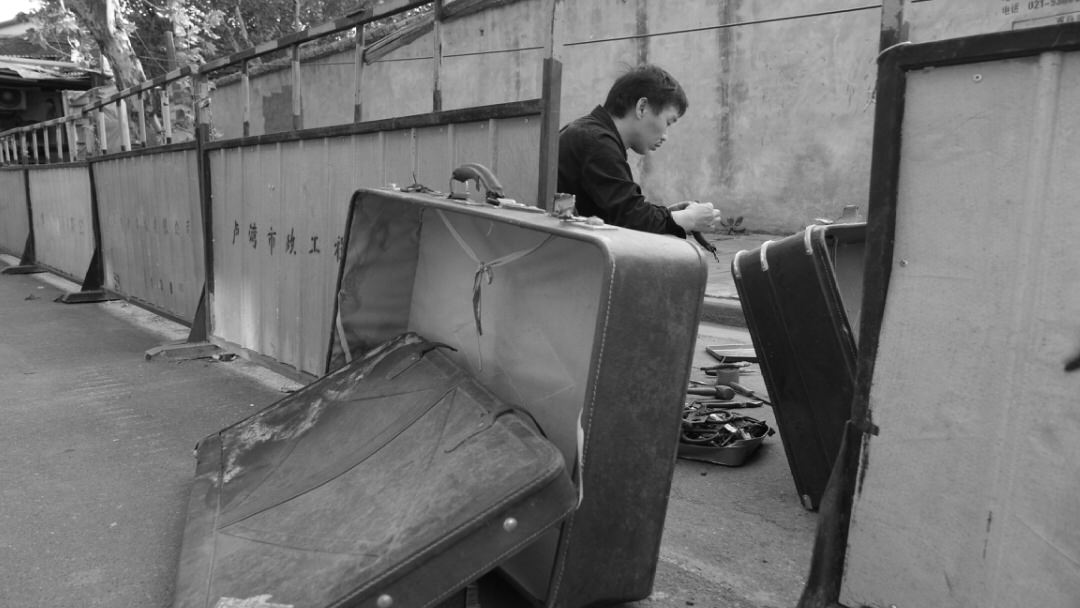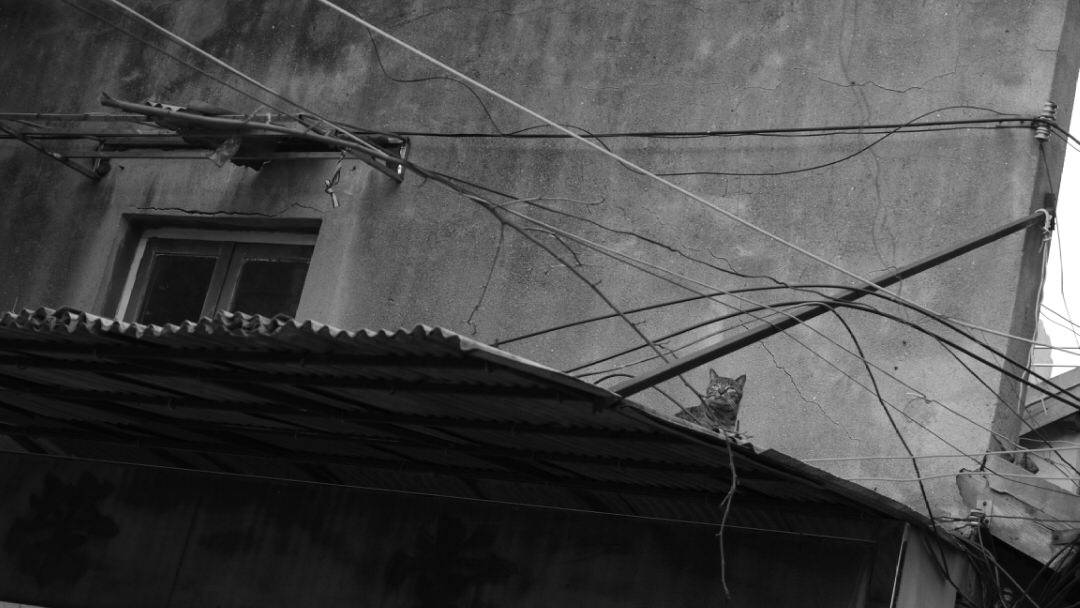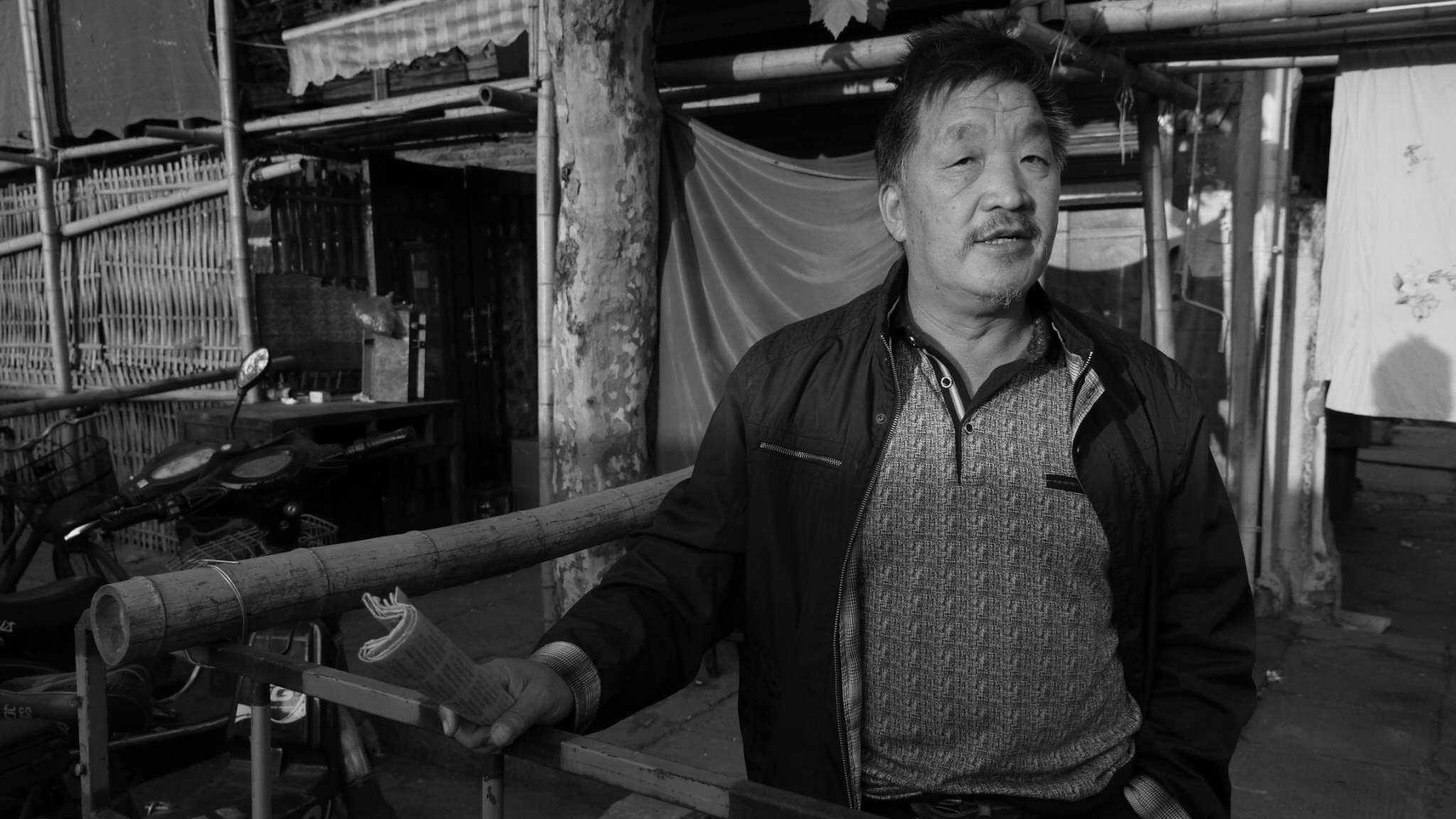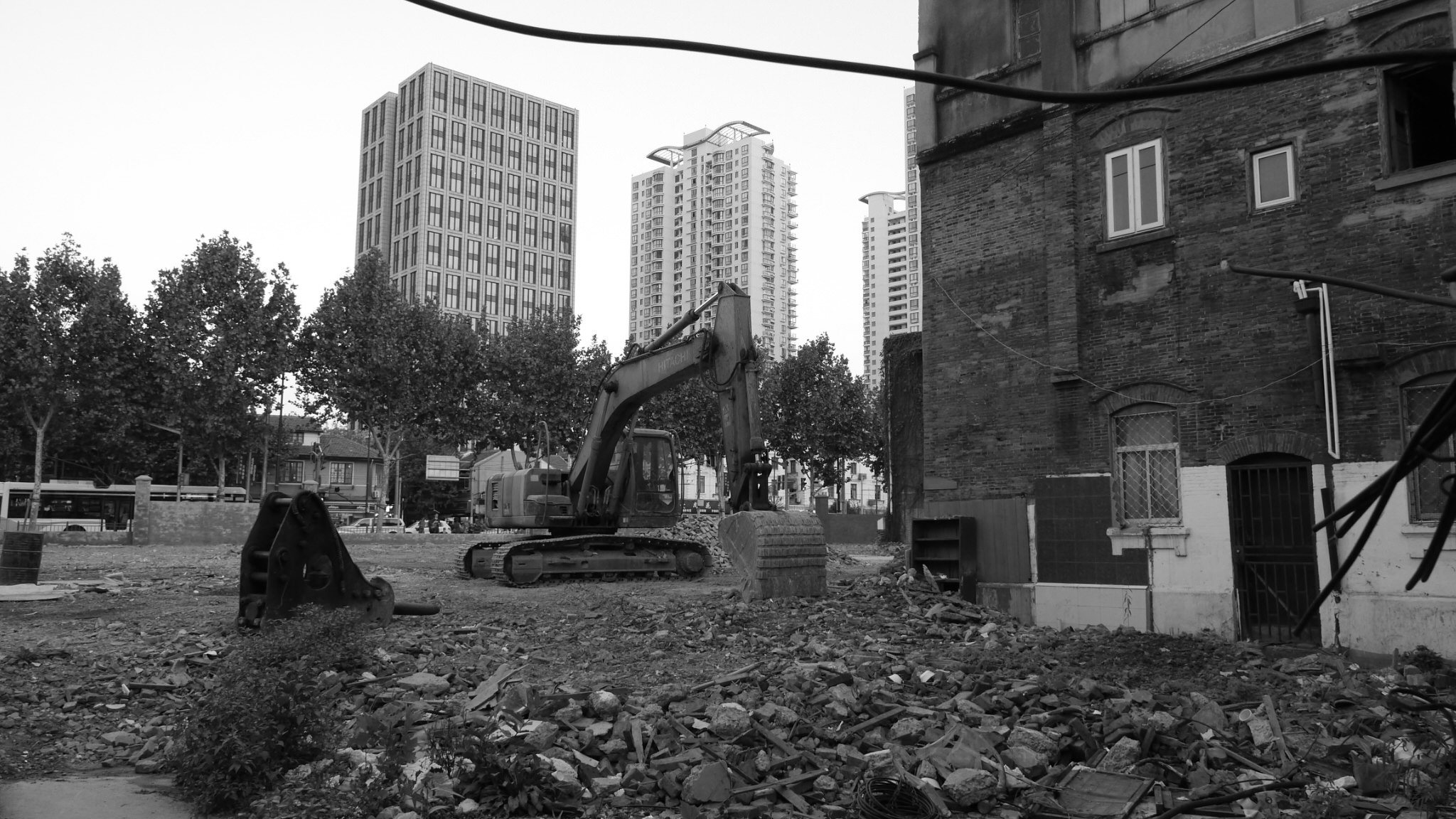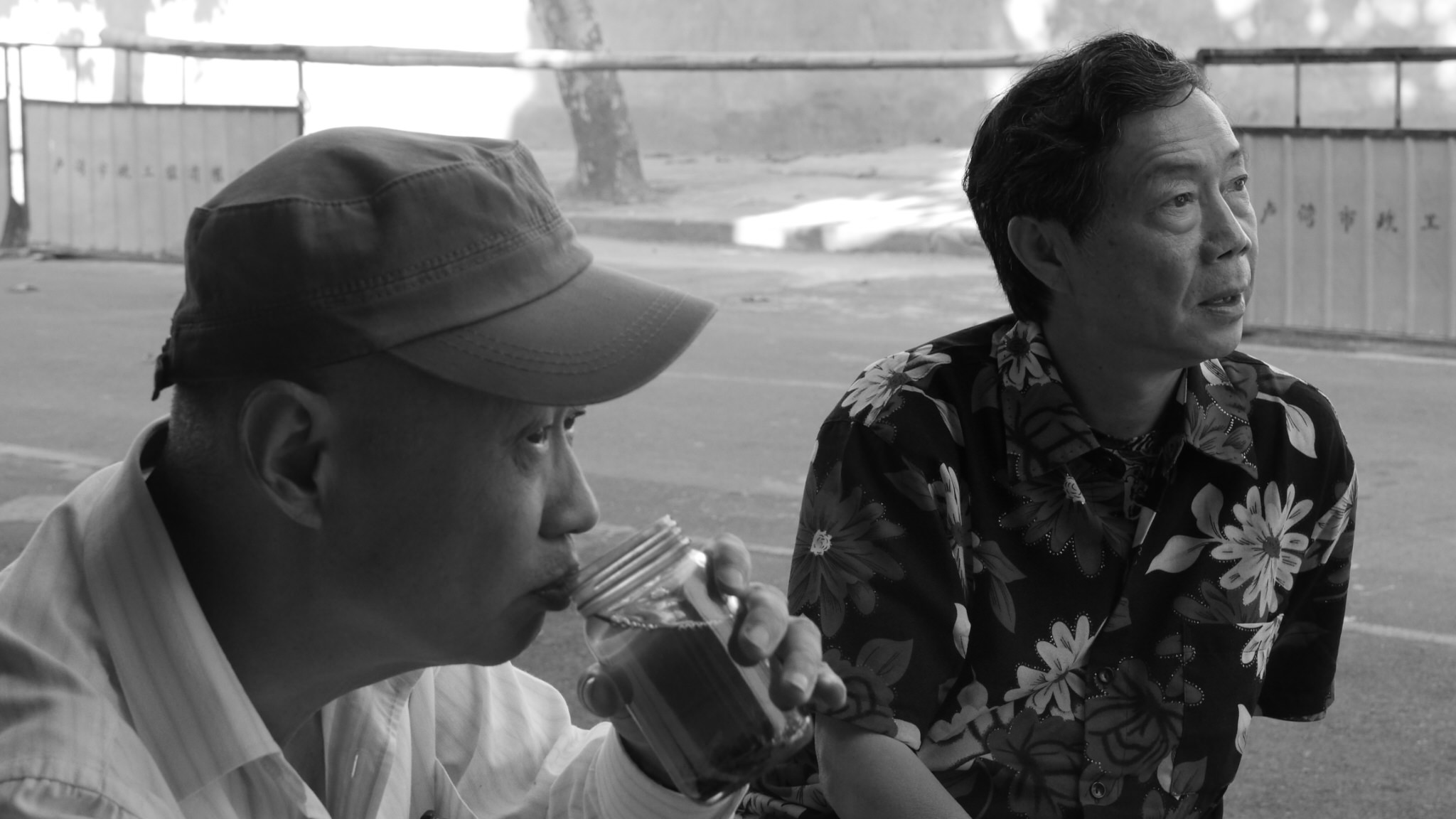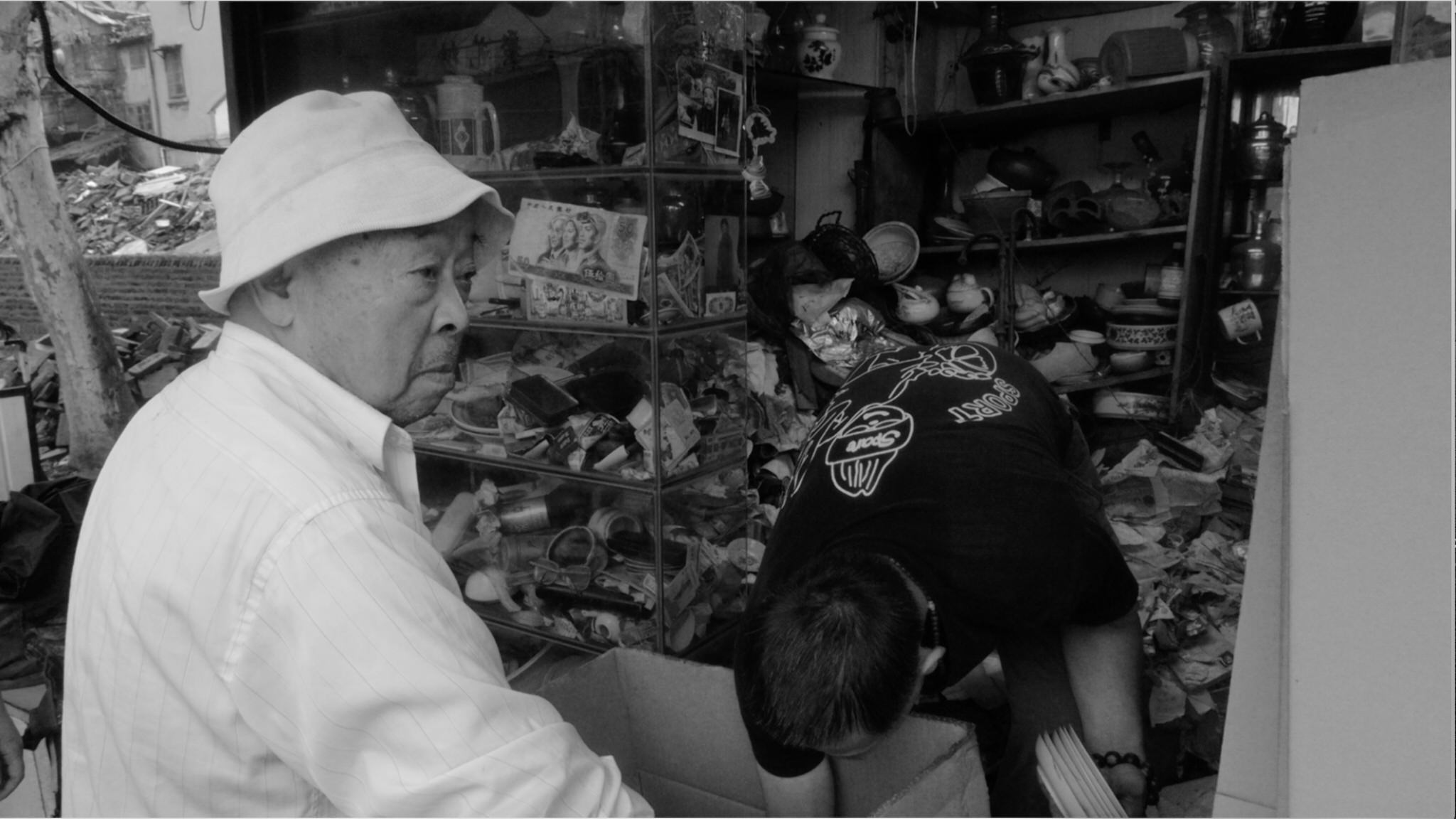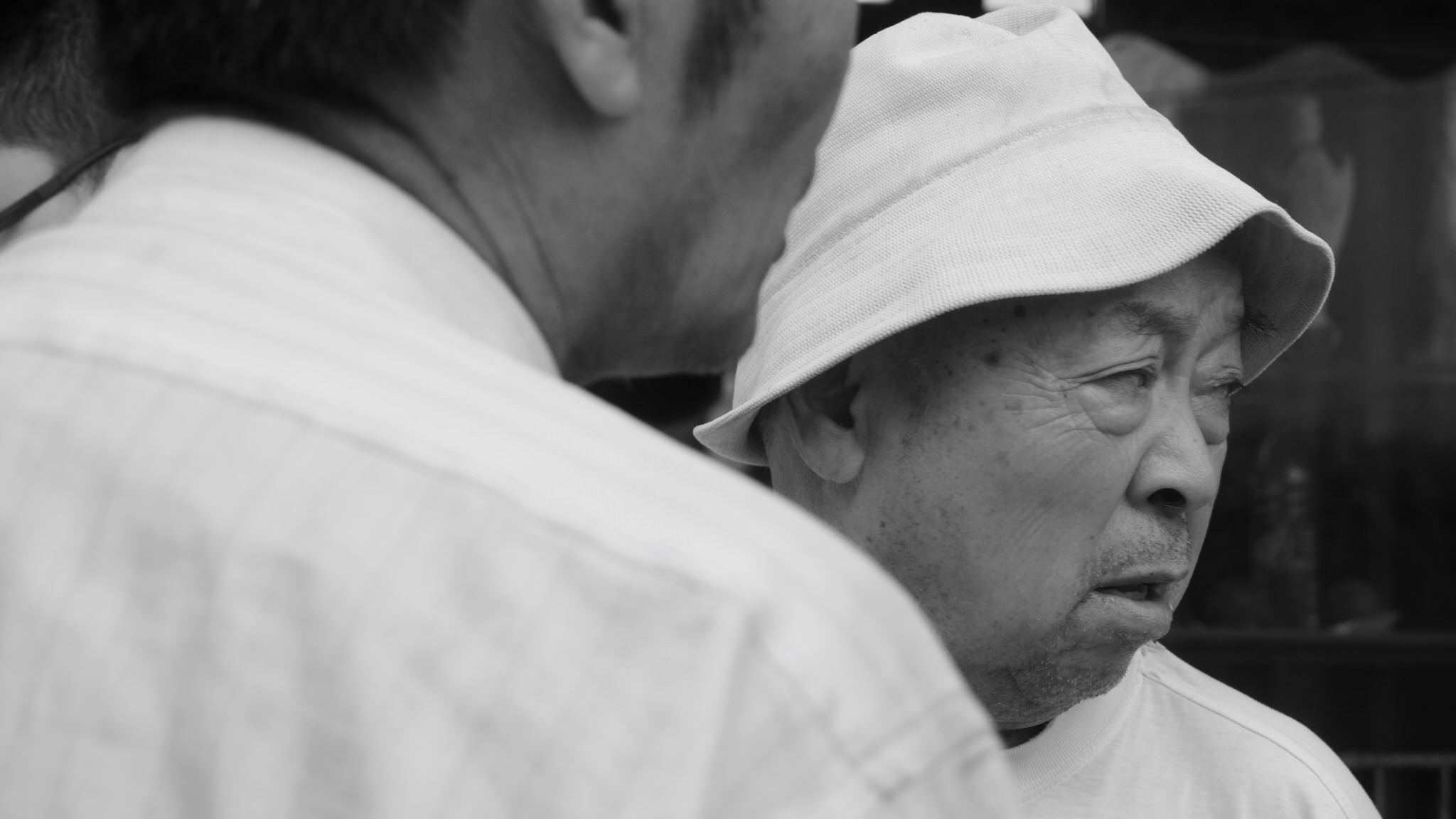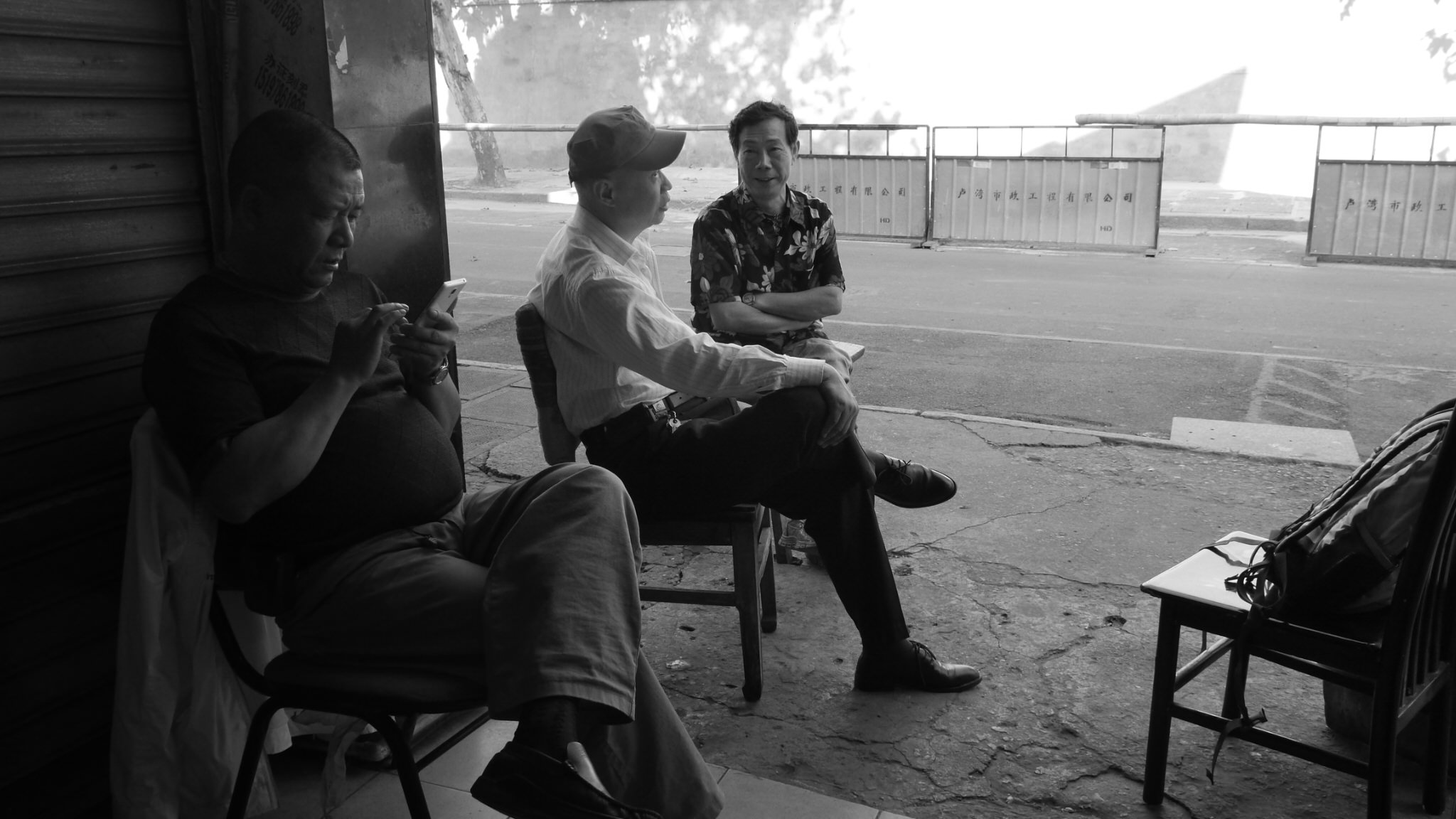A photographic journey into children’s fantasy lives.
Under the baking sun of a lazy Sunday on one of Shanghai’s labyrinthine market streets, vendors loudly hawked their wares to the few shoppers passing through the Nongtang alleys.
“Welcome aboard Magic Spaceship No.1. Me, the captain, will bring you to the magnificent galaxy!” a sporty nine-year-old boy informed his three fellows. Surrounded by chaos and noise, they circled a dilapidated motorcycle with a broken headlamp covered by plastic tape.
“The earth is burning! We have to take off the land right now. Come on, let’s go!” said the captain. He wiped sweat beads off his forehead with the dirty sleeve of his jacket as he hopped on the front seat. His jacket is emblazoned with Transformers leader Optimus Prime.
The passing housewives and grandmas passed by unaware of the upcoming launch or their own impending doom.
“Yes, sir!” Two chubby boys quickly hopped on the “spaceship.” One of the chubby boys giggled when he protectively tried to take over the entire back seat and their weight caused it start tilting back on its kickstand.
“It’s overloaded! Someone has to get off,” said the intrepid captain authoritatively.
“Don’t leave me alone on the earth! I want to move to the Mars too,” the third boy cried out, he anxiously clambered up and clung to the frame like passengers hanging on outside of over-packed trains in India.
His efforts and added weight tilted the motorcycle further towards the brink of toppling over. As the boys wildly shifted their weight to avert a real life disaster, they burst into peals of delighted laughter.
“Only ten seconds left! Ten, nine, eight, seven…” as the captain counted down the number, a kid who was about two years younger than the other boys meekly approached the vehicle. In an accent of Anhui province, he mischievously delivered a message, “Brothers, sorry but my dad said to get off his motorcycle. He needs to make a grocery delivery.”
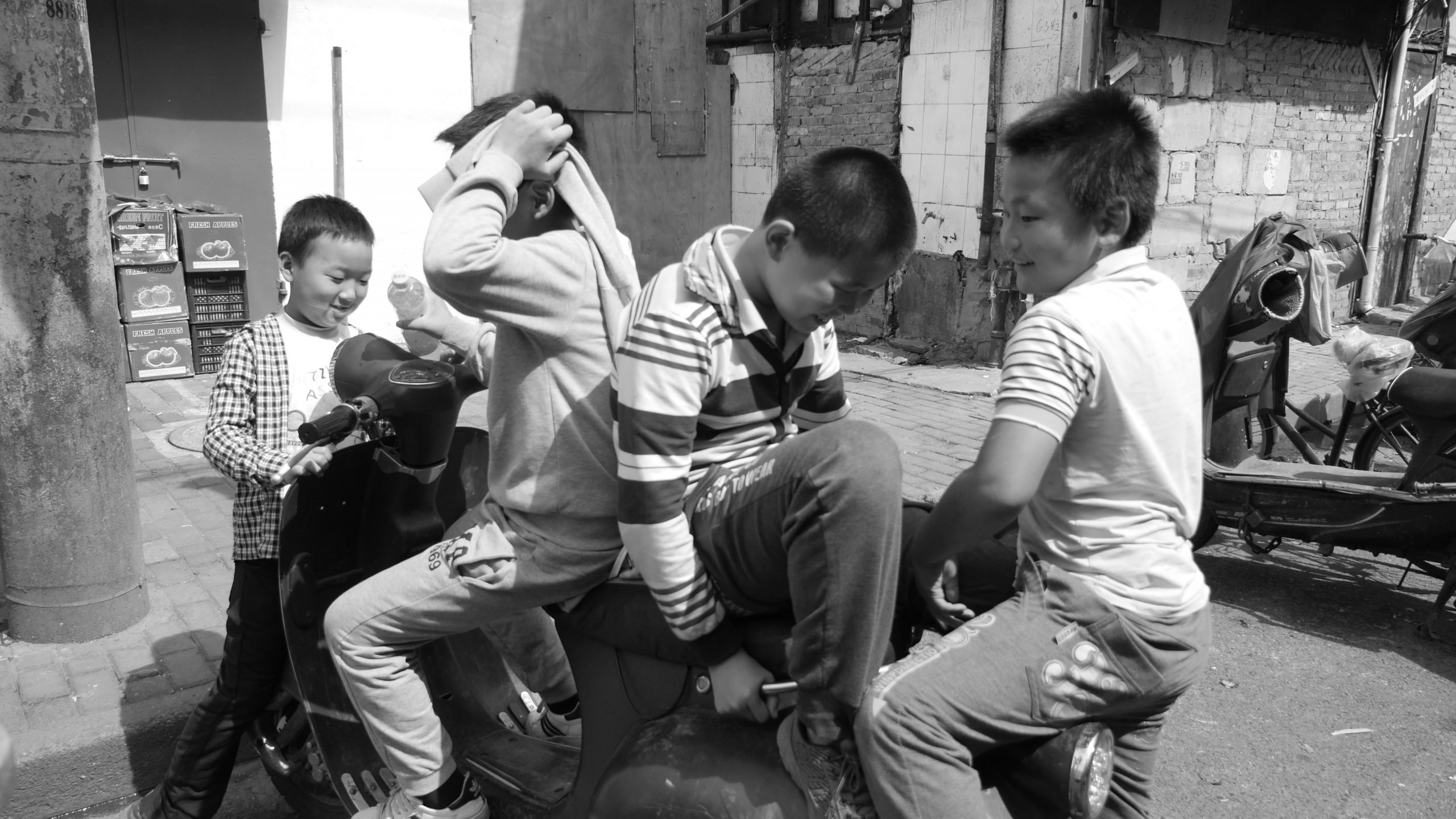
In China, millions of migrant workers contribute to metropolitan work in a wide variety of professions from being a construction labor to running hometown-style restaurants. Many have their children in tow as the family drifts from one city to another.
While the adults bear the burden of making a living, their kids are the pursuers of great adventures. They discover fun with the power of imaginations set free.
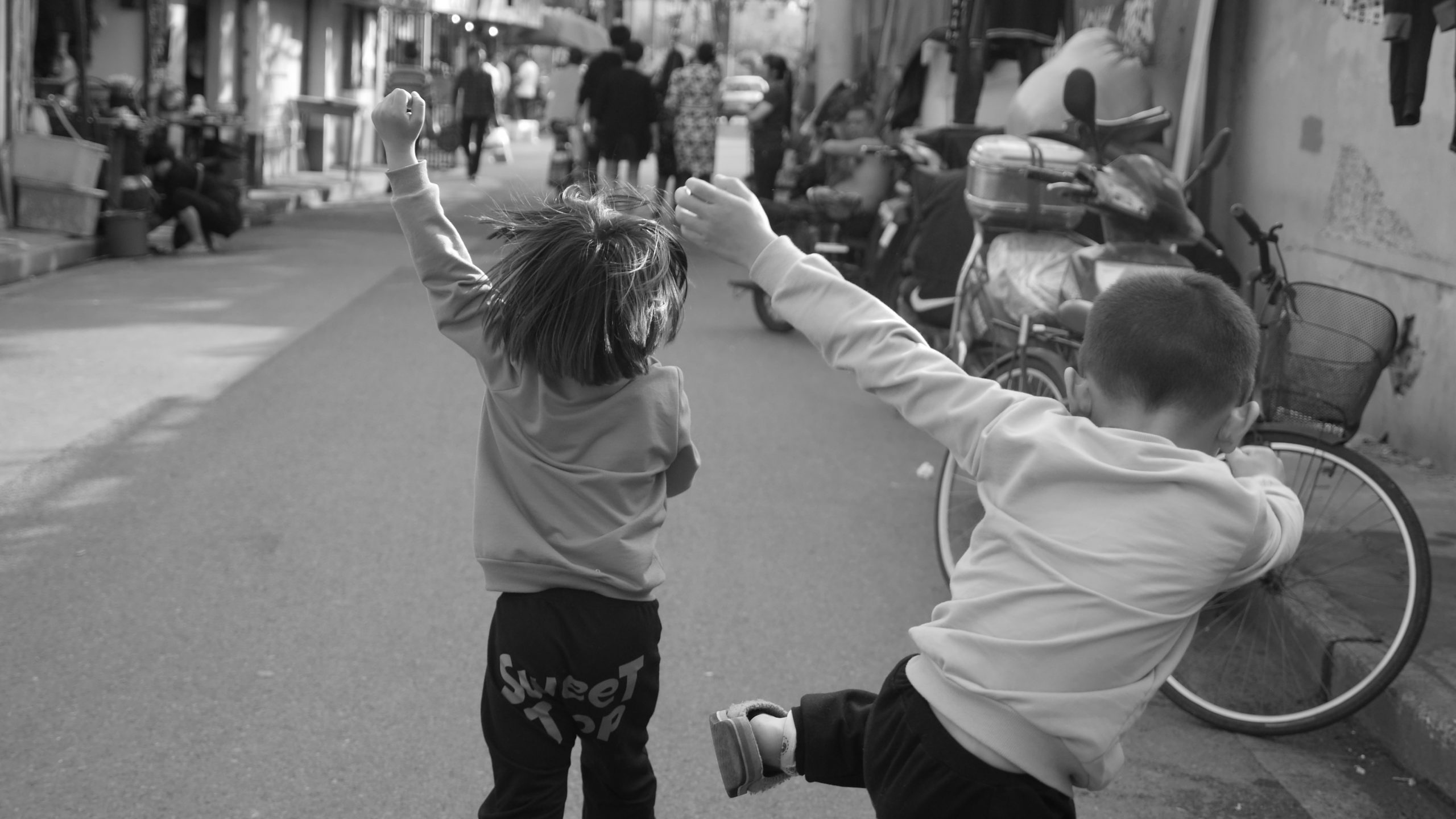
At 9:30 p.m., the sound of sizzling meat drew attention of commuters emerging from a nearby metro tunnel to the vendor stationed at the mouth of a quiet alley.
While most of them marched forward, eager to be greeted by cozy apartments, a female dressed in neat white-collar fashion in her late twenties was attracted by the enticing smell of barbecued meat. Under a dim streetlamp, she saw a couple from Xinjiang province were barbecuing lamb skewers.
The smoke from the barbecue stand hung over the couple as fat dripped onto the glowing coals. As they generously added sprinkled cumin upon the juicy meat, the office lady walked over and ordered three skewers as a reward for her long, hard day.
Tired, she yawned and looked around the sleepy alley. Next to the barbecue stand, two Xinjiang girls at ages five and three, both dressed in overalls, were energetically running back and forth with two discarded bicycle tires in their hands.
These were clearly the vendors’ children, she noted.
Bright smiles shone forth from their faces, round cheeks blushed with genuine excitement, an emotion not common among white-collar people, she thought.

As the elder Xinjiang kid lowered the tire to the ground, she surprisingly whispered to the tire, candidly, as if making wishes over a birthday cake. After giving an adept push, she continued chanting to herself while attentively watching the tire rolling along.
The tire traveled about five meters before wobbling. The elder kid hopped up and down with exhilaration. Following her sister, the younger one imitated the action, but her tire failed to go as far as her sister’s.
As the office lady inhaled the smell of enticing barbecued meat that relaxed her senses, she overheard the elder sibling giggle, “You have to say the magic words, Hot-wheel!” She could not help but think of Nezha, a mischievous god that rode on wheels of flame.
The office lady sat on the street curb and started nibbling on the barbecue. Observing how delighted the children were by this simple game provided a chance for reflection and a momentary relief from her office stress.
The kids noticed her glancing at them.
“Nice wheels, I wish I could play with you,” she said to the inquisitive adventurers. The kids beamed with wide grins and, taking her literally, ran to her eagerly. While she was not sure she could beat five meters, she knew the magic words. “Hot wheel.”
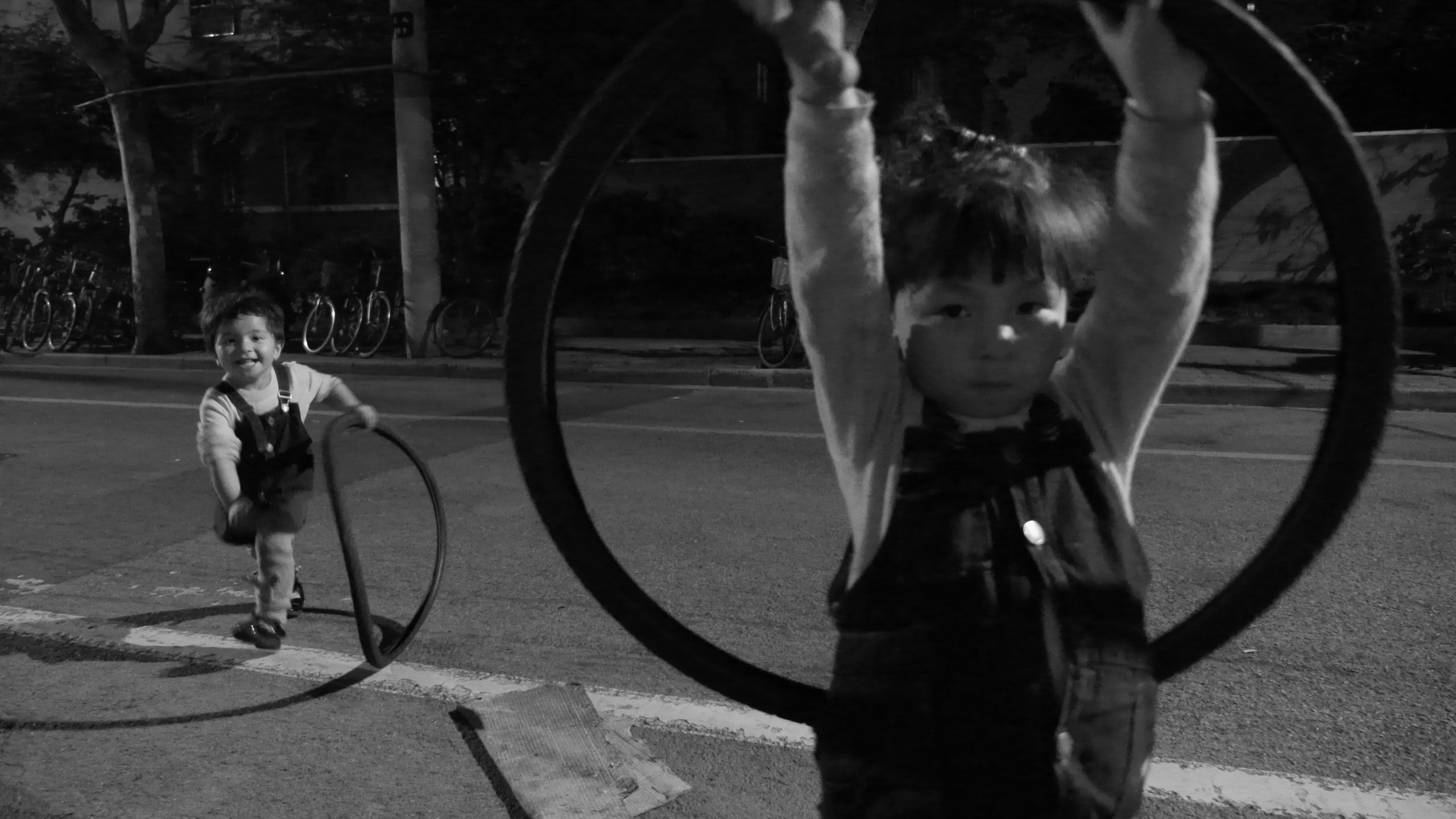
Creativity Team:
Photo & Fictional Storytelling by: Jude Jiang, jiangwenjude@icloud.com
Editing by: Richard Trombly, richard@trombly.com
